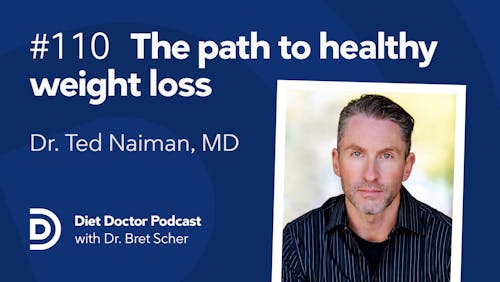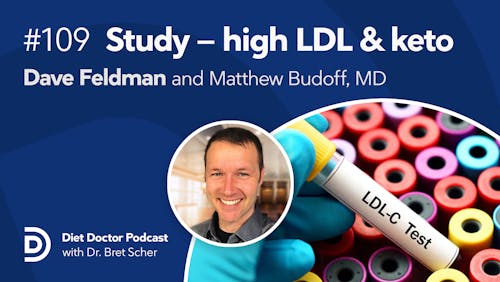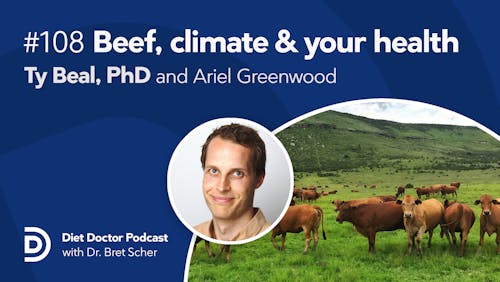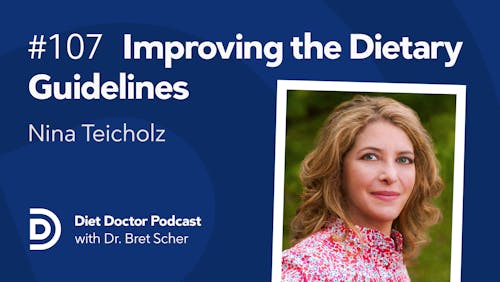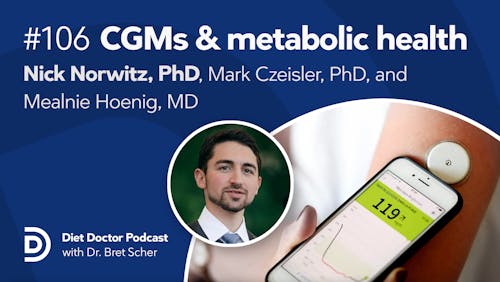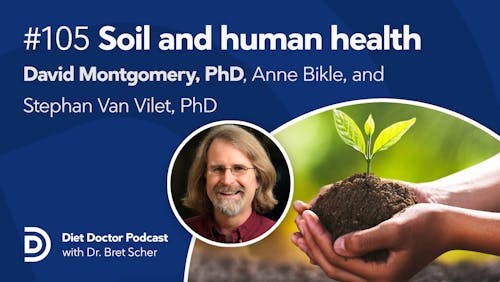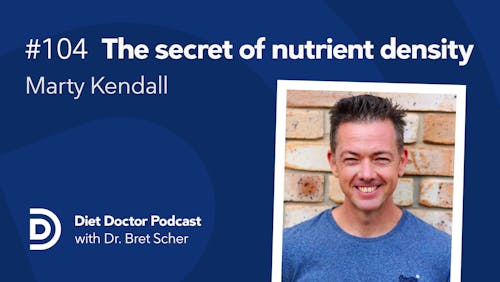Diet Doctor Podcast #12:
Dr. David Ludwig
1,327 views Add as favorite
In the messy world of nutritional science, some researchers rise above the others in their attempt to produce high quality and useful data. Dr. Ludwig exemplifies that role. As a practicing pediatric endocrinologist, he has seen first hand the rise in obesity, type 2 diabetes, fatty liver and other previously rare complications in adolescents.
As a result, he has made it his mission to help us better understand the role of calories, the importance of quality of calories, and the importance of the quality of the science we read. Is a calorie just a calorie? Why are so many scientific studies not helpful in answering this question, and what can we do about that? Dr. Ludwig answers these questions and more.
About the video
Recorded in October 2018, published in December 2018.
Host: Dr. Bret Scher
Sound: Dr. Bret Scher
Editing: Harianas Dewang
Table of contents
2:10 Bret’s update on Dr. David Ludwig’s recently published study
4:40 Seeing, as a paediatric endocrinologist the increase in obesity and diabetes in children
6:32 What David believe is the triggering factor
8:02 David’s study about weight loss on low-carb vs. high-carb diets
20:33 The problem with funding studies
26:30 About calories and carbohydrates
28:41 How to best design a trustworthy study
39:37 Which carbohydrates and for who?
41:05 What are the necessary steps to helping people’s health?
43:33 About the Pigovian tax and and the potential problems relating to study quality
50:13 Final words
In the messy world of nutritional science, some researchers rise above the others in their attempt to produce high quality and useful data. Dr. Ludwig exemplifies that role. As a practicing pediatric endocrinologist, he has seen first hand the rise in obesity, type 2 diabetes, fatty liver and other previously rare complications in adolescents.
As a result, he has made it his mission to help us better understand the role of calories, the importance of quality of calories, and the importance of the quality of the science we read. Is a calorie just a calorie? Why are so many scientific studies not helpful in answering this question, and what can we do about that? Dr. Ludwig answers these questions and more.
TranscriptAbout the video
Recorded in October 2018, published in December 2018.
Host: Dr. Bret Scher
Sound: Dr. Bret Scher
Editing: Harianas Dewang
